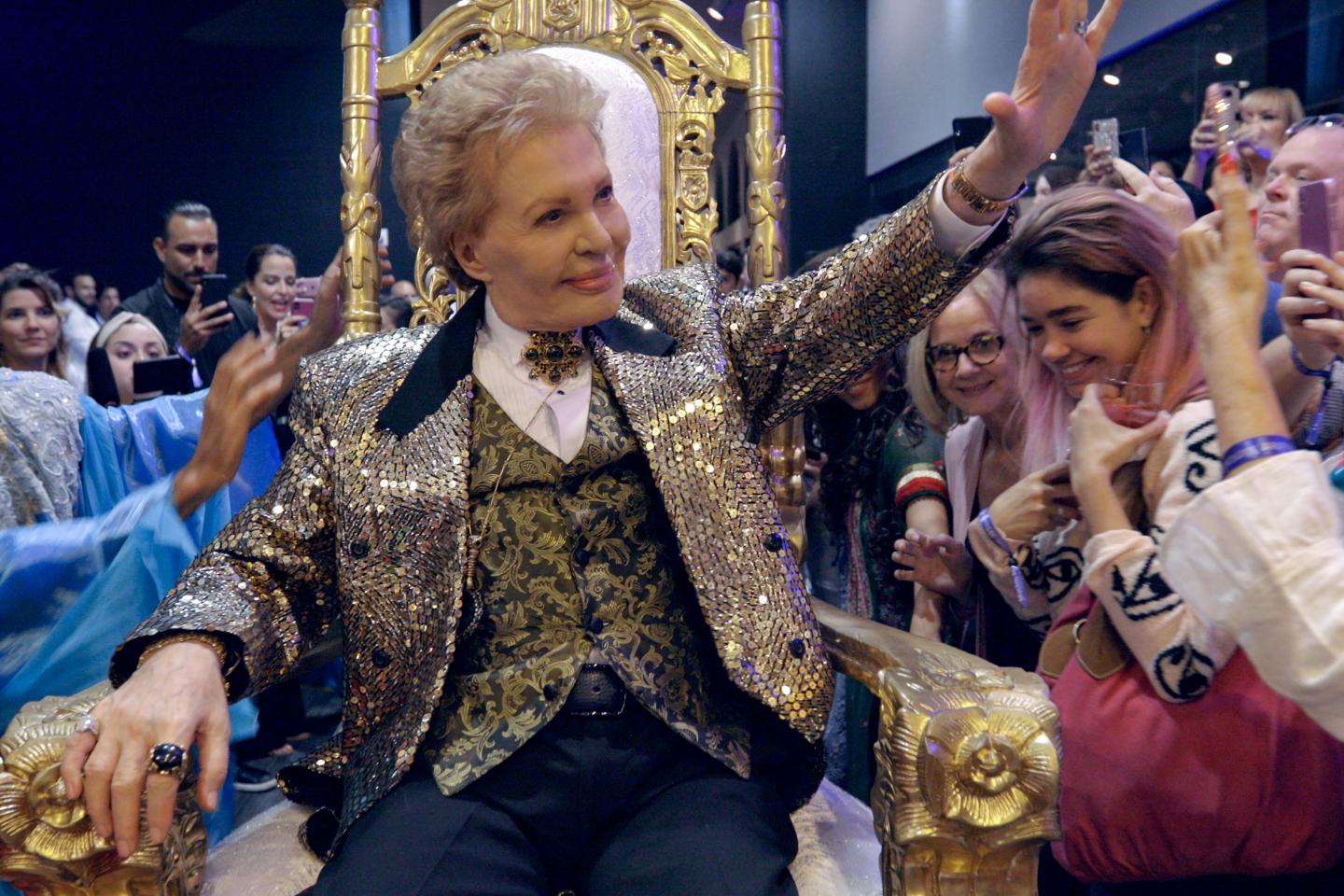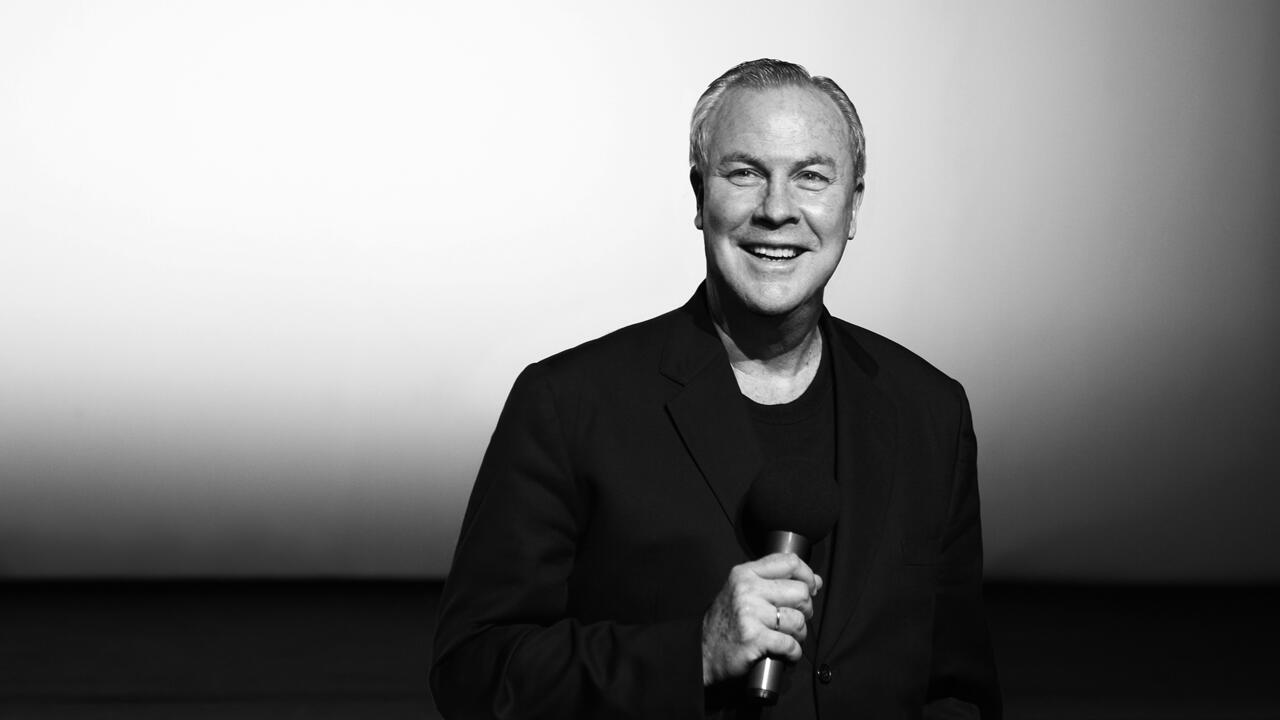The Bright White Light of Walter Mercado
A fawning new Netflix documentary about the iconic astrologer shies away from the more problematic aspects of his success
A fawning new Netflix documentary about the iconic astrologer shies away from the more problematic aspects of his success

There’s a scene in the first few minutes of the new Netflix documentary Mucho Mucho Amor (2020), in which two versions of the late Puerto Rican celebrity astrologer Walter Mercado stand opposite one another. Mercado, who is in his late 80s in the film, is in his living room, replaying old footage from the peak of his career. He stares up at his television, a smile dancing on his lips and a sense of longing sinking into the crevices of his face, where he’s reverted the passing of time with Botox. (‘Little arrangements ... like Nicole Kidman,’ he jokes.) He watches his younger self – the over-the-top, ornately robed showman who became an international phenomenon decades ago for delivering horoscopes on nightly Spanish-language news shows. ‘It’s very emotional for me,’ he says, choking up.

The moment is deeply intimate, but also embellished with drama befitting Mercado. The creators of Mucho Mucho Amor, Cristina Costantini and Kareem Tabsch, were eager to uncloak and understand the icon. They spent two years with him before he died in 2019, discovering, in many ways, someone permanently fused to his lifelong performance as a subversive, feathered-haired mystic, agilely transcending the boundaries of gender and entertainment. Their cameras lovingly capture his daily life while translating the immensity of Mercado as a cultural figure.
Mercado inhabited a realm at once liminal and cosmic. His presentation was a bold act of gender nonconformity: on television, dressed in gilded costumes, he would be coded as both male and female, a radical ambiguity considering the religious and patriarchal traditions of many audiences in Latin America and the Latinx diaspora. His showy astrological readings were punctuated with expressive hand gestures, borrowed from his time as a dancer and telenovela actor. ‘He endows the drag queen with papal authority,’ wrote performance-studies scholar Diana Taylor in The Archive and the Repertoire (2003). Though embraced by generations of queer kids who saw freedom in his image, Mercado never came out. Instead, he used spirituality, as well as camp, to project the sexual ambiguity of a deity or god. ‘I have sexuality with the wind,’ he declares in Mucho Mucho Amor. The film prods gently: his long-time assistant, Willie Acosta, often presumed to be his partner, insists that what they have is a ‘family relationship’.

Still, Mucho Mucho Amor shies away from how Mercado dually reflected the damaging priorities of Latinidad and the Spanish-speaking entertainment industry, which has long favoured light-skinned, white-passing performers. Mercado espoused beliefs that blended Catholicism, Santería and Afro-Caribbean Espiritismo – offering a kind of pan-spirituality for the masses. Although he preached love and positivity, his whiteness, extravagance and message of self-improvement lent itself to ‘the participation in the national illusion of success’, as Taylor puts it. That his viewers may have been vulnerable or disenfranchised is only touched upon in this film, with Mercado defending himself from claims of exploitation by declaring that ‘always, they receive some kind of words of inspiration or motivation’. A crushing, six-year legal battle with his former manager, Bill Bakula, instead paints Mercado with a naivety that obscures harder questions of how, and from whom, he benefitted.
In addition to slightly contrived moments, such as a visit with composer Lin-Manuel Miranda, the documentary relies on the sentimentality of ‘50 Years of Walter Mercado’, a 2019 exhibition at the HistoryMiami Museum. It’s a comeback celebration but, as Mercado prepares for the opening, what emerges is a more affecting journey. Aged and ailing, he poses dramatically beneath sparkling lights during a photoshoot, until he wavers under the weight of his seven-kilogram robe.

‘I’m Walter, a body,’ Mercado says at one point. ‘But, more important than the body, my spirit and my message is going to be eternal.’ Mercado passed away on 2 November 2019, not long after the HistoryMiami Museum exhibition opened. Just as he predicted, his memory now looms larger than life.























